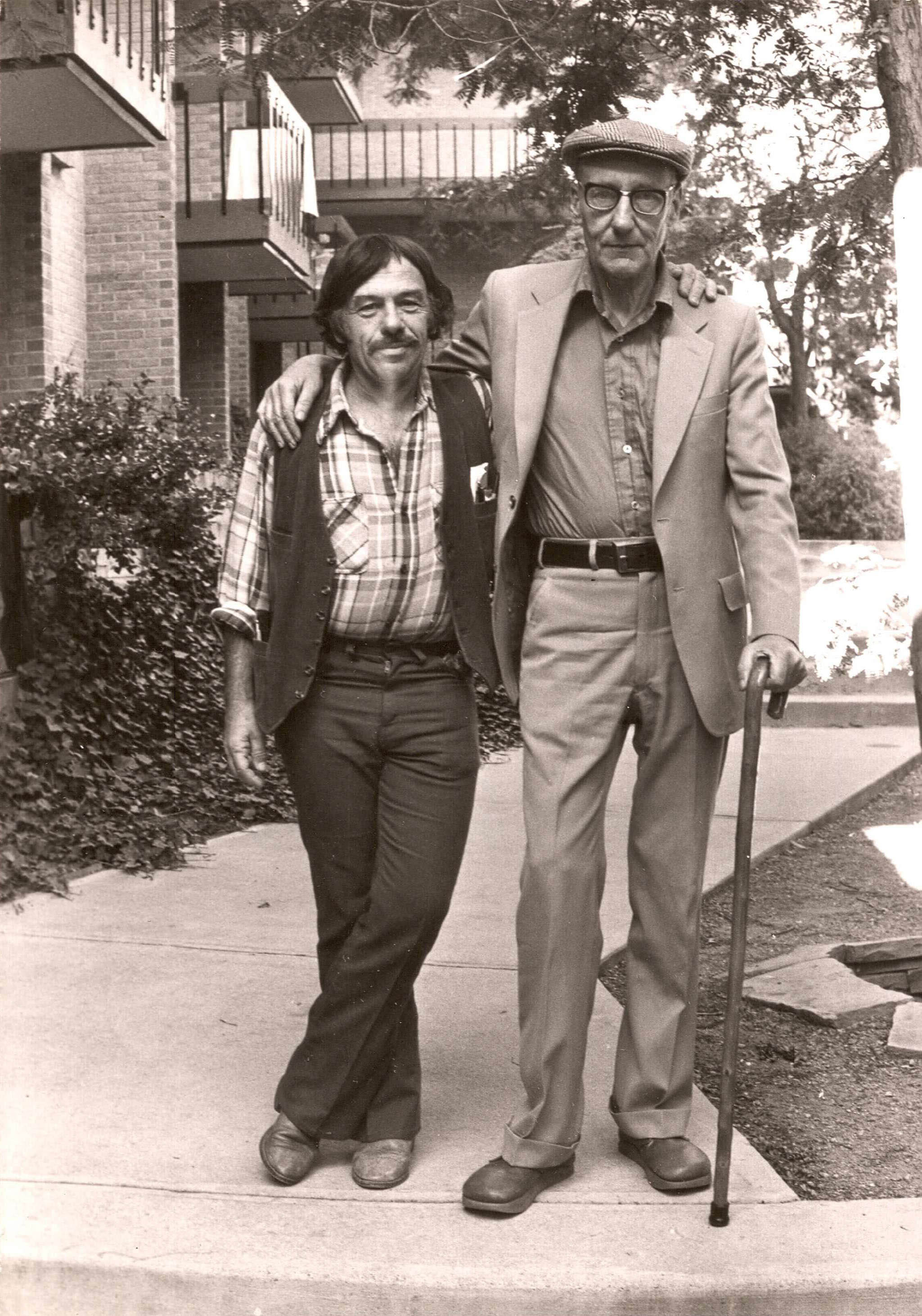 Harold Norse with William Burroughs
Harold Norse with William Burroughs
A review of I Am Going to Fly Through Glass: Selected Poems of Harold Norse,
edited by Todd Swindell (Talisman House Publishers: Northfield, Massachusetts, 2014)
One thing at least was certain: the human race
wouldn’t come to an end because of sodomy.
—Harold Norse, Memoirs of a Bastard Angel (1989)
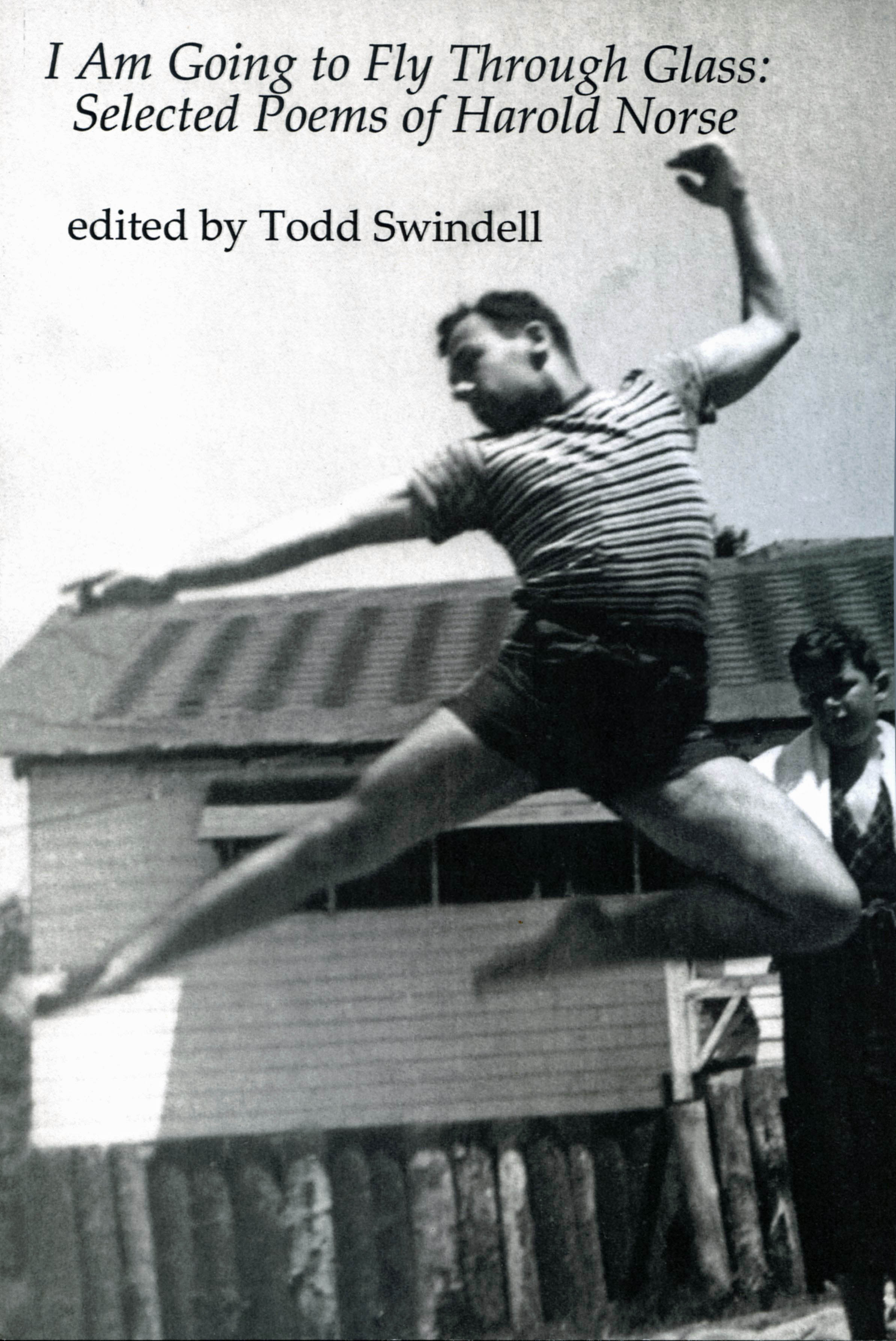
“Norse was outrageous,” said Neeli Cherkovski, recalling his days of cruising San Francisco with gay icon Harold Norse. Norse himself wrote,
a fire in my brain
burns
the slag & trash deposits
of my century
It is significant that the interesting concluding lines of Norse’s passage tend to group themselves rhythmically into a single line of iambic pentameter—a verse form that haunted Norse throughout his life.
Talisman House Publishers has recently published I’m Going to Fly Through Glass, a new Selected Poems by Harold Norse. Lovingly edited by Todd Swindell and with an introduction by Neeli Cherkovski, it’s an excellent passageway into the work of a man admired by writers as diverse as James Baldwin, William Carlos Williams, W.H. Auden, Allen Ginsberg, and Charles Bukowski. The cover of I’m Going to Fly Through Glass features a remarkable 1938 photograph of the young poet executing a balletic leap, a tour jeté en l’air. I’m sure it’s the hope of Todd Swindell that Harold Norse’s reputation will perform a similar leap because of this book. Enumerating “short” poets, Harold once gleefully remarked to me, “Keats was a midget!” A leap gives a man height.
*
Harold Norse knew many of the famous people of his day—James Baldwin, to whom he dedicated his autobiography, Memoirs of a Bastard Angel; Tennessee Williams; Allen Ginsberg; W.H. Auden; William Burroughs; Jack Kerouac; Frank O’Hara; Julian Beck; Anaïs Nin, etc.—but in 2003 he remarked, “People expect, as I did, the famous writers and poets to be just open and wonderfully giving, and they were not. They all wanted to go to bed with me.”
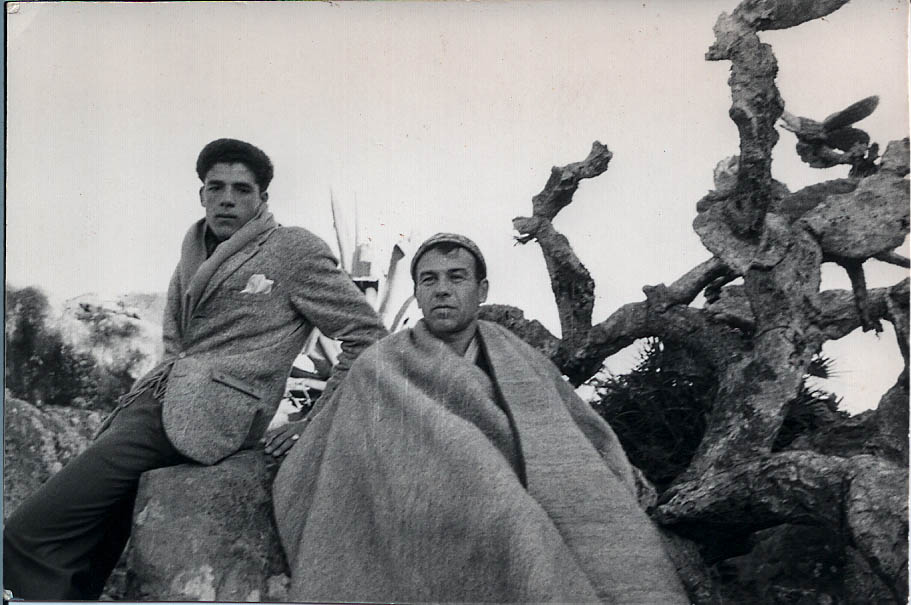
Born out of wedlock on July 6, 1916, Harold Norse was the “bastard angel” product of an affair his Lithuanian immigrant mother had with a man of German or German-Jewish descent. The man soon deserted the family. “My mother,” Norse wrote, “must have been too melodramatic for him.” “My birth,” he discovered later, “was an unmentionable outrage. To my grandmother, a product of czarist Russia, I was no less than the son of the Devil. During her long, tedious life my mother was unable to deal with the shame and the guilt.” When his mother married another man, Harold took on the surname of his stepfather, Albaum—a man he came to hate: “When I learned that he had died of a coronary, I felt a rush of joy. I felt free. Home was the most violent place I knew.” In the early 1950s, Harold reinvented both himself and his name by rearranging the family name “Rosen” into “Norse.”
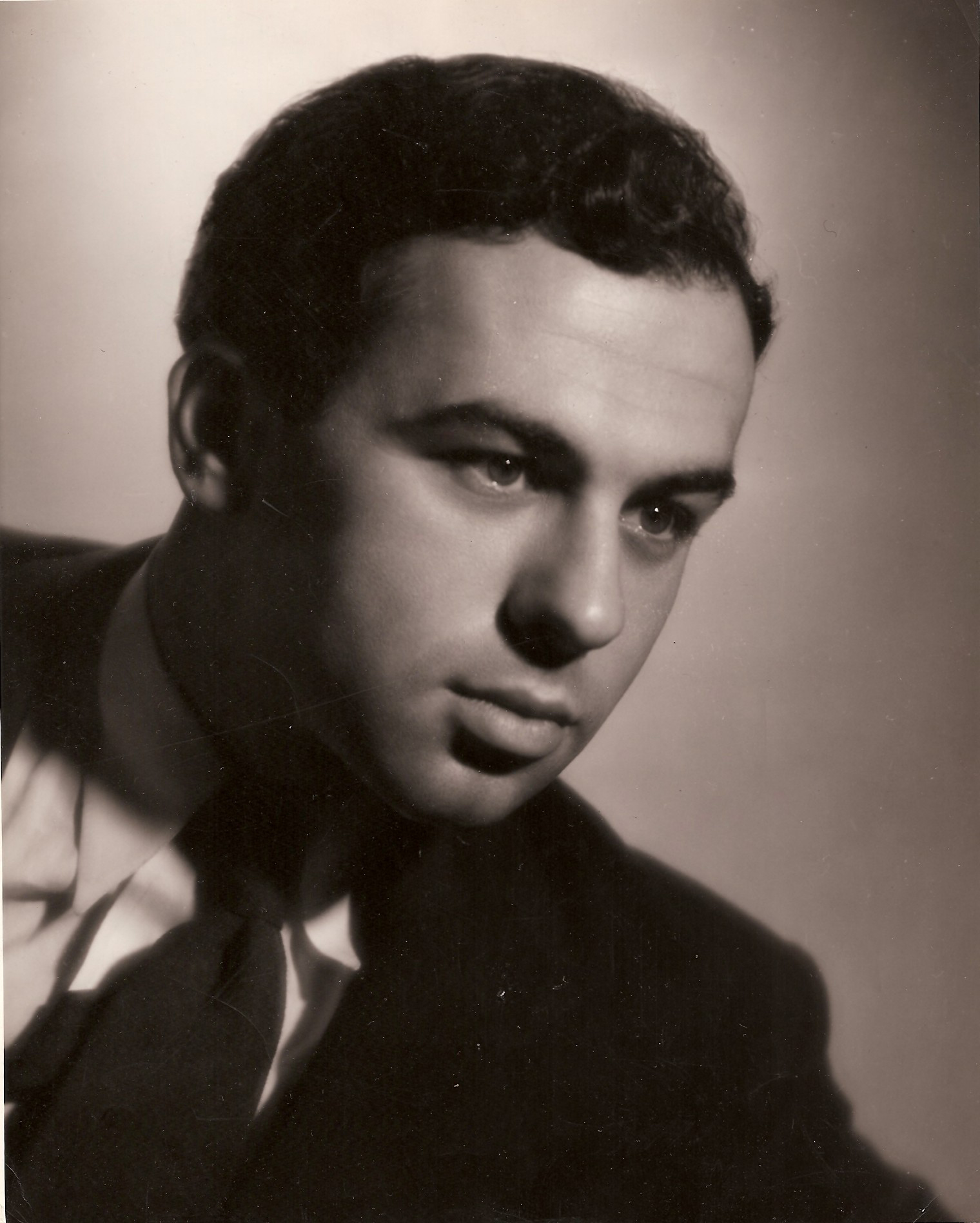
Harold earned a bachelor’s degree in English literature at Brooklyn College in 1938. While there, he edited the college literary magazine and began writing academic poetry. He had a romantic affair with Chester Kallman, who was later to be the companion of W.H. Auden. While attending New York University to gain a masters degree, Harold met William Carlos Williams.
Auden and Williams were to become the poles of Norse’s early work. “It is all right to enjoy [T.S.] Eliot,” Williams told Norse, in 1951, “but remember, he ran away from the thing which you have to realize to come out whole. Watch your step.” “I was at a crossroads,” Norse wrote of that period. If he ultimately chose Williams over both Auden and the academy, he nonetheless retained a connection to the world both Auden and the academy represented. Even at its freest, Norse’s verse could echo the iambic pentameter that Williams hated. Nor was projective verse an option. Fascinated by Charles Olson’s “Projective Verse” essay (1950)—which Williams admired—Norse, significantly, disliked Olson’s piece “for its style.”
In 1953, Norse moved to Italy where he encountered both a far less puritanical attitude towards homosexuality and the work of the 19th-century poet Giuseppe Gioachino Belli, who wrote in the Roman dialect. Norse’s translations of Belli were made, he said, “with a dictionary in one hand and a Roman in the other.” Roman Sonnets, with a preface by William Carlos Williams, was published in 1960:
Lot At Home
With their stout staffs in their left hand
Two pilgrims at the hour of Ave Maria
Were looking for the hotel in the area
Because one had a pain in his leg and couldn’t stand.
There they met Mr. Lot, and he threw wide
The door, saying: “My house. Step inside.”
And they answered him: “By gosh, tomorrow
You’ll be the white-haired boy of this rotten borough.”
Those two angels, brother, whose tight britches
When the Gomorrhites saw them pass
Straightened all the dicks in the whole city.
And they arrived shrieking, those damn bitches,
“Lot, send down the pilgrims to us, so we
Can oblige each other by putting it up the ass!”
Williams praised Norse’s deliberately “vulgar” and fiercely unsentimental language (including the Ave Maria reference is a particularly nice touch) as an example of “the American idiom”—“an idiom inaccessible to anyone before the present time.” But Norse’s translations were also deliberate, formal productions: rhyming sonnets.
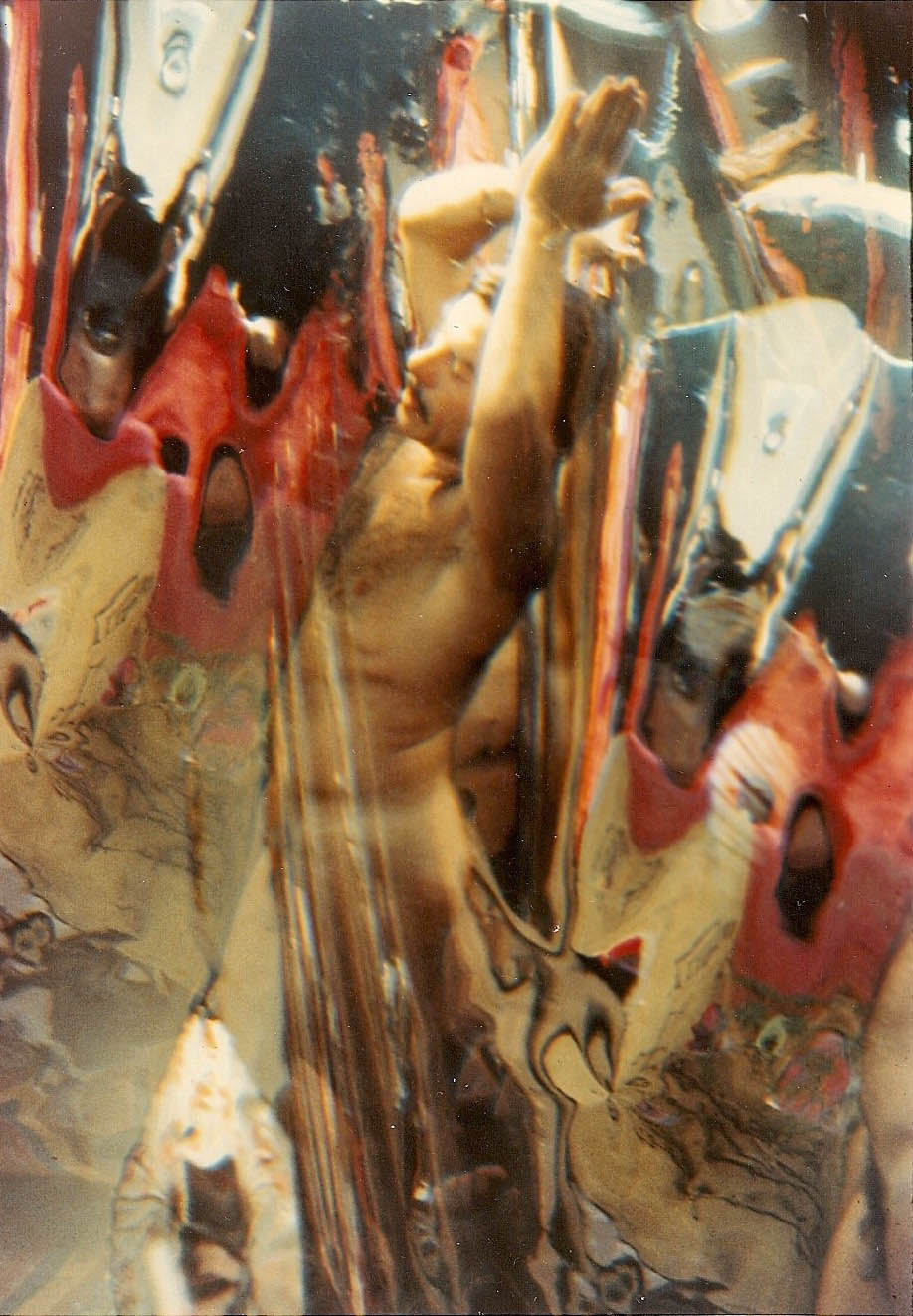
In that same year, in Paris, Harold moved in with Allen Ginsberg, William Burroughs and Gregory Corso, who were living at 9, rue Gît-le-Coeur, a seedy Left-Bank establishment later to be known as “The Beat Hotel.” While there, Norse joined Brion Gysin and William Burroughs in experimenting with “cut-up” techniques. Norse’s novel, Beat Hotel begins, “Bob sat up straight in bed, straining to listen. Nothing. Voices crackled as from an old radio and figures stirred in some numb echo-chamber of his brain, like newspapers down a windy street. He felt enclosed in a soundproof room.”
In 1968, Norse returned to the United States, settling in Venice, California. While there, he met and befriended Charles Bukowski, who admired Norse’s work. In 1969, Norse, Bukowski and Philip Lamantia were all included in the Penguin volume, Penguin Modern Poets 13.
In 1972, Harold moved to San Francisco. In 1974, City Lights published Hotel Nirvana: Selected Poems, 1953-1973 and Louis Cuneo’s Mother’s Hen Press published I See America Daily. (In an inscription, Norse wrote, “Would that I saw Paris or Rome instead.”) In 1977, Gay Sunshine Press published the substantial volume, Carnivorous Saint: Gay Poems 1941-1976 and in 1986 The Crossing Press published Harold Norse The Love Poems 1940-1985. Norse’s status as both a gay and an innovative writer was definitely established. In 2003, Thunder’s Mouth Press brought out In the Hub of the Fiery Force: Collected Poems, 1934-2003. His poem, “I’m Not a Man,” written in San Francisco in 1972, has become one of his most famous:
I’m not a man. I can’t earn a living, buy new things for my
family. I have acne and a small peter.
I’m not a man. I don’t like football, boxing and cars.
I like to express my feelings. I even like to put an arm
around my friend’s shoulder.
I’m not a man. I won’t play the role assigned to me—the role
created by Madison Avenue, Playboy, Hollywood and Oliver Cromwell.
Television does not dictate my behavior. I am under 5 foot 4.
I’m not a man. Once when I shot a squirrel I swore that I would
never kill again. I gave up meat. The sight of blood makes me
sick. I like flowers.
I’m not a man. I went to prison resisting the draft. I do not
fight back when real men beat me up and call me queer. I dislike
violence.
I’m not a man. I have never raped a woman. I don’t hate blacks.
I do not get emotional when the flag is waved. I do not think
I should love America or leave it. I think I should laugh at it.
I’m not a man. I have never had the clap.
I’m not a man. Playboy is not my favorite magazine.
I’m not a man. I cry when I’m unhappy.
I’m not a man. I do not feel superior to women.
I’m not a man. I don’t wear a jockstrap.
I’m not a man. I write poetry.
I’m not a man. I meditate on peace and love.
I’m not a man. I don’t want to destroy you.
Perhaps because of the line, “I have acne and a small peter”—and despite some clear autobiographical elements—Norse always prefaced the poem at readings by announcing that it was “not autobiographical.”

I was asked recently, “Who reads or remembers Harold Norse?” It was a good question, and I would have to admit that the answer is very few people—and, further, that these people are much more likely to be Californians than New Yorkers. Yet everyone who reads Norse remarks that he is a very good poet. Why isn’t he better known? Admired people admired his work. William Carlos Williams, James Baldwin, Allen Ginsberg, William Burroughs, many others—all thought he was a fine writer. Charles Bukowski, who admired very few poets, unstintingly admired Norse. I think the problem is that Norse’s imagination never moved towards what might be called spectacular or scandalous or attention-grabbing modes. Think of the difference between Norse’s excellent, explicit gay poems and a book like Jean Genet’s Nôtre Dame des Fleurs. The same tension that played itself out on a stylistic level in Norse’s work—should he write formal verse, should he write something freer?—was also present in his psyche. (Note, incidentally, that the concluding, climactic line of the free verse “I’m Not a Man” is a line of almost exact iambic pentameter.) For all Norse’s genuine courage, his risks tended to be in areas others had explored before. Beat Hotel is a very fine book, but there is Naked Lunch. Norse has a fine poem about his mad mother in a rest home—but Ginsberg had already written “Kaddish.” There is no Waste Land, no Howl—and certainly no Maximus Poems—in his oeuvre. Yet is this Norse’s problem or our own? We live at a time when it is almost impossible to praise a poet without calling him “great”! Norse was not a “great” poet, but he was a very good one. Williams, Baldwin, Ginsberg, Burroughs, et al could give him praise, but they could not give him their audiences. Shouldn’t there be a place for a man who, in Auden’s phrase, spent his life in “writing well”? Isn’t it the point of magazines like The American Poetry Review (APR) to direct readers towards the little known, the careful, caring writers who kept the flame alive but who never used it to burn anything down? May Todd Swindell’s carefully-edited libellus (“little book,” as Catullus put it) bring Harold the readers his work deserves.

In his memorial poem to Harold Norse, Norse’s longtime friend and advocate Neeli Cherkovski wrote, “You / were the man / who showed me / at least one way / out of solitude / and back into the self.” In 1993, I gave Harold a cassette tape of Walt Whitman reading his poem, “America.” The only place Harold could play the tape was in his message machine—and that fact gave him a poem. I’ve always loved Harold’s poem because it shows not only his love of Whitman—a major factor in his writing—but also his charm, his wit, his love (though he could be a vain man) of community and of poetry itself, particularly of poetry as it manifested in that “American idiom” which Walt Whitman was among the first to enunciate and which Harold Norse clearly and vibrantly continued.
Walt Whitman Called Today
for Jack Foley
Walt Whitman left a message on my answering machine today.
He called long distance. I found him personal, enthralling.
His voice was vibrant, sexy, full of warmth,
Lusty in age, still powerful, still a natural force:
Centre of equal daughters, equal sons,
All, all alike endear’d, grown, ungrown, young or old,
Strong, ample, fair, enduring, capable, rich,
Perennial with the Earth, with Freedom, Law and Love.
Ancient artifact of wax, lone sample of eternal voice,
Early, imperfect, scratchy background of drowning din,
Roaring surf-like waves of sound rolled over his words,
Like static from seas of Time, haunts of Spirit’s mystical deeps,
Rising and surging, lapping syllables, cradling Space,
Reaching from 19th Century Jersey shores to me.
Many decades now since first I read your leaves, dear Walt
(A boy of sixteen, rocking and rolling in your cradle of grass),
A century after your death you recite in my room,
From Edison’s wax cylinder, four lines remaining,
Miraculously preserved, discovered, radio broadcast
Forty years ago, recorded, then melted away!
Here retained on cassette plugged into my answering machine
(O wondrous your Brooklyn accent, Walt, like mine!),
Close, familiar, at last in the flesh, your message received
And answered in kind, inspiring communal love,
Before I, too, am recycled in Eternity.
Jack Foley
A version of this article first appeared some years ago in CPR:
http://www.cprw.com/Foley/norse.htm
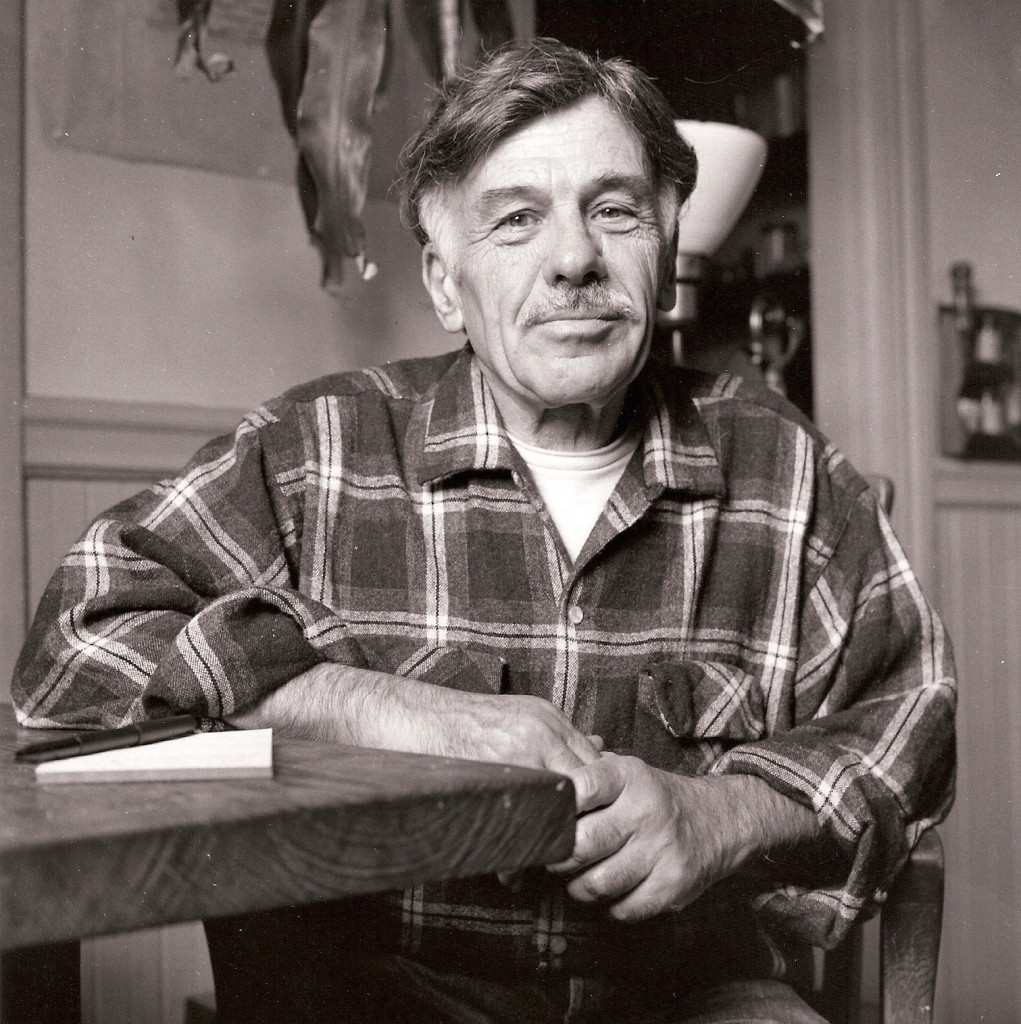

[…] the latest review of I Am Going to Fly Through Glass: The Selected Poems of Harold Norse is now available online at International Times– the newspaper of […]
Pingback by Jack Foley Review of Selected Poems in International Times | Harold Norse on 4 September, 2015 at 5:12 am[…] recently featured Jack Foley’s review of the Norse Selected Poems and it’s great to see the him popping up […]
Pingback by Jan Herman’s The San Francisco Earthquake and Norse Centennial Update | Harold Norse on 15 March, 2016 at 3:34 am[…] July 6, 2016 will mark the hundredth anniversary of the birth of master American poet Harold Norse. Known for his association with Beat literature and gay liberation, Norse’s work retains its pertinence in today’s fractured world or politics and despair. This has been reflected in increased attention to Norse’s legacy recently from The New York Times to the International Times. […]
Pingback by Harold Norse Centennial Events | Harold Norse on 7 April, 2016 at 12:29 am[…] July 6, 2016 marks the hundredth anniversary of the birth of master American poet Harold Norse. Known for his association with Beat literature and gay liberation, Norse’s work retains its pertinence in today’s fractured world of politics and despair. This has been reflected by increased attention to Norse’s legacy from The New York Times to the International Times. […]
Pingback by Harold Norse Centennial on 23 May, 2016 at 9:10 amI purchased a copy of “the outlaw bible of American poetry” recently and came across the poem entitled “Dream of Frank O’Hara”. It is one of the best I think I have ever had the pleasure of reading. I became so intrigued I had to know what his relationship was to this man- did he know him? Were they friends? Lovers? Or is the title to be taken literally, as a recounting of his dream/s? I would love to know anyone else’s thoughts or if they know where more information is on these men and their works.
Comment by Mint on 17 March, 2023 at 7:49 am